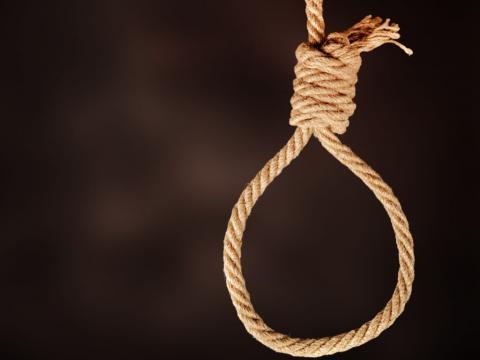By Francis H. Murray
Sierra Leone’s Chief Minister, Professor David Francis says President Julius Maada Bio has officially given a directive to abolish the death penalty from the country’s statutes.
He made this statement on Thursday 4th February 2021 during the first presidential award for best performing ministries at State House in Freetown.
“The most recent manifesto commitment delivered is the official restart of the Constitutional Review Process and the acceptance by President Bio of the Justice Cowan Constitutional Review Committee recommendation to abolish the death penalty. So as of today, the death penalty as per the directive of the President is abolished,” he stated.
But lawyers who have roundly welcome the president’s willingness to abolish say it cannot just be struck out by aa proclamation and must be taken to Parliament.
The decision is a recommendation by the Truth and Reconciliation Commission (TRC), a post-war mechanism. It also follows years of advocacy from rights campaigners who have called on past and present governments to consider the review of the constitutions which is considered among the oldest in the sub-region.
The most recent of such campaigns was a one-day national conference conveyed by local NGOs and CSOs held in Freetown on the 26 January 2021 on the need for the government to resume the constitutional review process including a repeal of capital punishment.
Campaigners have roundly welcomed the move to repeal, even if calling on the government to speed up the process. They include the Sierra Leone Bar Association. Speaking to Politico, their president, Edwina Swallow urged the government to speed up the legislative process to make it real.
“We are happy about the proclamation but we want more to be done,” she said. Asked what more, Ms. Swallow said things needed to be speeded up to catch up on all the areas before the bill was brought to parliament. She said the bar would make its position paper known later this week.
In a random view around Freetown, ordinary citizens gave their reaction to the issue.
In a company of two other middle-aged men on Edward Street, Hassan Tawarally said he supported the President’s decision, adding that even if the offence of murder was committed intentionally, it shouldn’t warrant taking the life of the offender by way of punishment.
Theophilous Harris, who runs a tailoring shop around central town, said that because the police, during the course of their investigations, were also liable to prejudice certain cases for personal gains thereby making wrong arrests and possible prosecution, no one should take the life of another regardless of the offence committed.
But Idrissa Conteh, a civil servant, gave a contrary view to the development, noting that it served as a deterrent to criminals and must remain untouched.
He said: “It is inappropriate to remove such a law from our constitution especially at a time when the idle youths are prone and vulnerable to all kinds of drugs that sometimes make them insensitive to whatever act they get involved in, including murder. It serves as a deterrent to others who might be tempted into committing such grave offences against other people. Even with this law, there are still reports of stabbings and killings. So imagine if they become aware that it no longer exists.”
Isata Kamara, a middle-aged trader and widow, said she lost her husband during the civil war for which those who the Special Court thought bore the greatest responsibly are still serving their jail terms. She added that they couldn’t get any better justice than what they had received.
“People who kill are bad people and if we say we kill them also for their act, there’s no difference between them and us. Although serving lifetime sentences is not commensurate to the loss, it brings some gratification knowing that the perpetrator has been brought to book,” she said.
A bill that touches on the abolition of the death penalty has to be drafted and taken to Parliament for subsequent enactment into law.
The process when completed will be the second controversial constitutional provision that the Bio administration would have taken on in his first three years in office, following the striking down of Part 5 of the criminal and seditious libel law of 1965.
The death penalty has been used as the punishment for robbery with aggravation, murder and treason.
Copyright © 2021 Politico Online








